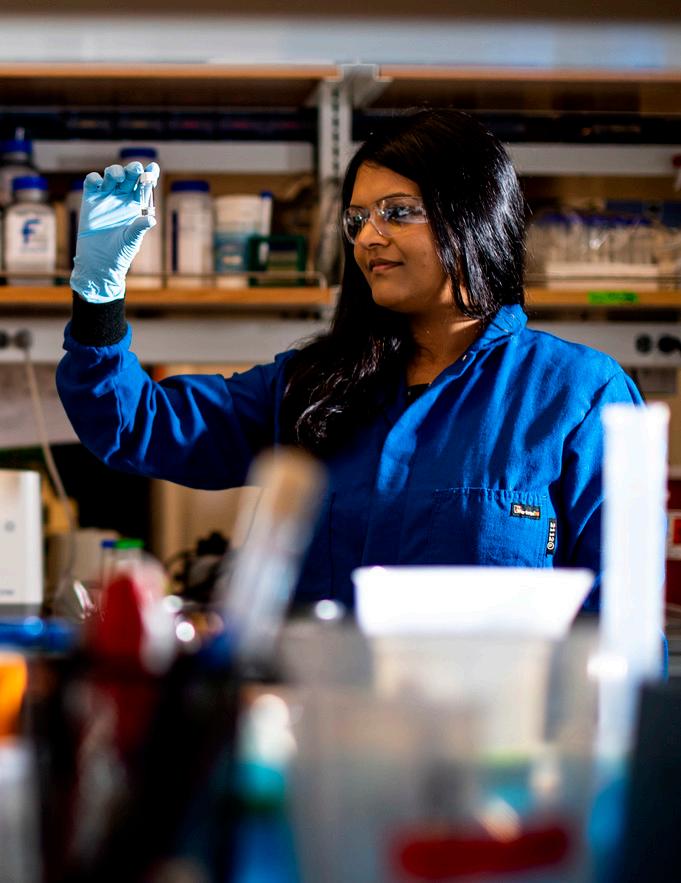
ANNUAL REPORT 2021-22
With 215 tenured/tenure-track faculty and 18 multidisciplinary research centers and institutes with funding by eight federal agencies, the College of Engineering is a leader in experiential education and interdisciplinary research focused on discovering solutions to global challenges to benefit society.
Founded in 1898, Northeastern is a global research university and the recognized leader in experiential lifelong learning. Our approach of integrating real-world experience with education, research, and innovation empowers our students, faculty, alumni, and partners to create worldwide impact.
Northeastern’s comprehensive undergraduate and graduate programs lead to degrees through the doctorate in nine colleges and schools across our global system of campuses. Learning is personalized and experiential, with a curriculum that emphasizes the intersection of data, technology, and human literacies—uniquely preparing graduates for lives of fulfillment and accomplishment.
Our research enterprise, with an R1 Carnegie classification, is solutions-oriented and spans the world. Our faculty scholars work in teams that cross not just disciplines, but also sectors— aligned around today’s highly interconnected global challenges and focused on transformative impact for humankind.
DEAR COLLEAGUES, FRIENDS, AND STUDENTS,
Measuring the impact of fundamental research is never easy, in part because it may take decades for the full impact of a discovery to be obvious. Research on the immunogenicity of mRNA and its alteration through chemical modification seemed quite obscure until a globe engulfing virus triggered a pandemic that was dramatically quenched by vaccines made possible by that ‘obscure’ research. It may take a while for effective therapies to emerge from our research. But the possibility of our work making an impact is the driver that keeps us going. Engineering in a biological context—whether it be a novel device for assisting the visually impaired, a 3D printed vascular system for tissue engineering; a new paradigm for design of asthma therapies— always has the potential of great impact. In this report, you will find a few stories of the research that we at Northeastern are doing now and get a glimpse of our hopes for its impact in the future.
At Northeastern, students and faculty work together to combine classroom, research, and experiential learning in a vibrant bioengineering community that spans the entire University. With over 70 tenured/tenure-track and affiliated faculty, the Department of Bioengineering offers research that encompasses the entire breadth of biological and biomedical engineering.
Our co-op program is working with companies across the sector to provide bioengineering students with cutting-edge opportunities within the Boston biotech industry and beyond. Career opportunities are rapidly expanding as the industry focuses on development of entirely new classes of products, instrumentation, and implants. The opportunities afforded our students through these placements are extraordinary.
This Annual Report provides a glimpse into the many activities of our faculty and the energy and breadth of their research. When you see stories that intrigue, entice, or excite, I hope you will take the time to further explore the details through our website, publications, and activities.
Sincerely, Lee Makowski, PhD Department Chair Bioengineering l.makowski@northeastern.edu
For more details, visit our website at BIOE.NORTHEASTERN.EDU.
 Photo by Adam Glanzman
Photo by Adam Glanzman
We are a leader in experiential education and interdisciplinary research, focused on Engineering for Society


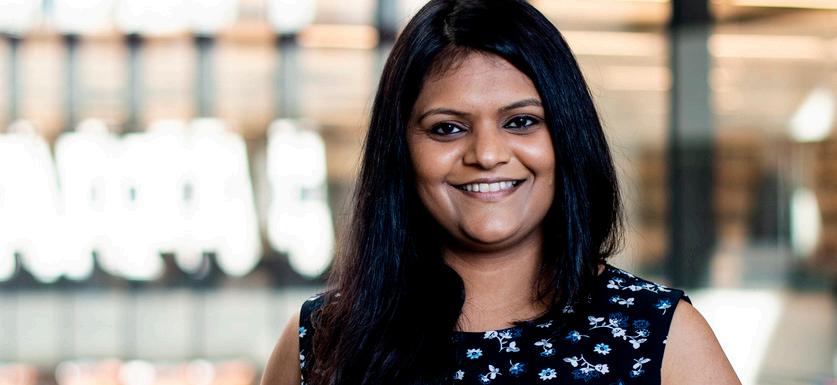
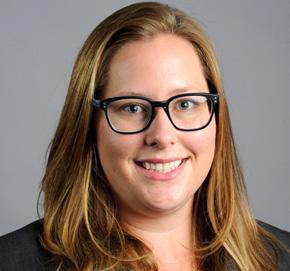
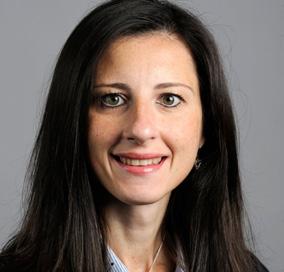
2 NORTHEASTERN UNIVERSITY BIOENGINEERING Quick Facts bioengineering Quick Facts college of engineering 116 102 Engineering Departments5 YOUNG INVESTIGATOR Awards Professional Society Fellowships Total Co-op Hires (2022) Co-op Employer Partners (2020-2022) TOTAL ENROLLMENT (Fall 2021) 54% Graduate 46% Undergraduate8,542 2,897 2,200 Including 64 NSF CAREER Awards, and 18 DOD Young Investigator Awards With 215 tenured/tenure-track faculty and 18 multidisciplinary research centers and institutes with funding by eight federal agencies, the College of Engineering is a leader in experiential education and interdisciplinary research focused on discovering solutions to global challenges to benefit society. 48% MS 31% PhD 11% BS Enrollment Growth (2016 to 2021) Full-time Faculty External Research Awards (2020-2022) Young Investigator Awards Professional Society Fellowships 10 11 37 $24M National Academy Member Herbert Levine University Distinguished Professor Allen Distinguished Investigator Nikolai Slavov Associate Professor Research Institute New Academic Programs BS Mechanical Engineering and Bioengineering BS Bioengineering and Biochemistry MS in Bioengineering concentration in Systems, Synthetic, and Computational Bioengineering Offered in Boston and with a computational engineering focus at the Roux Institute in Portland, Maine 2022 National Science Foundation CAREER Award Recipient Ambika Baypajee Associate Professor Jessica Oakes Assistant Professor + Chiara Bellini Associate Professor 2022 National Institute of Environmental Services Outstanding New Environmental Scientist (ONES) Award 865 197 Graduate Students Students 58% Students are Women (Fall-2021) Institute for Chemical Imaging of Living Systems at 203% from 2016
Our Newest Faculty
Aileen Huang-Saad
Associate Professor, Bioengineering and Director of Life Science and Engineering Programs, the Roux Institute PhD: Johns Hopkins School of Medicine, 1996
Previously: Associate Professor, University of Michigan

Scholarship Focus: Entrepreneurship education microenvironments, instructional design, higher education organizational change
Awards: Fulbright Award, 2020
Miten Jain

Assistant Professor, Bioengineering
Jointly Appointed: Physics PhD: University of California, Santa Cruz, 2017
Previously: Assistant Research Scientist, University of California, Santa Cruz
Scholarship Focus: Nanopore technology, single-cell techniques, computational biology
Francis Loth Professor, Bioengineering
Jointly Appointed: Mechanical and Industrial Engineering
PhD: Georgia Institute of Technology, 1993
Previously: Professor and F.T. Harrington Chair, University of Akron and Executive Director, Conquer Chiari Research Center
Scholarship Focus: Biological flows, experimental and computational fluid mechanics, Chiari malformation
Esin Sözer
Assistant Teaching Professor, Bioengineering PhD: University of Southern California, 2011
Previously: Research Assistant Professor, Old Dominion University
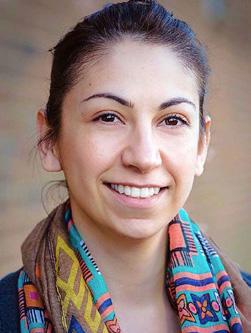

Scholarship Focus: Education, biophysics of electric field and biological system interactions, electropermeabilization, and electrostimulation
Tao Sun
Assistant Professor, Bioengineering PhD: Tufts University, 2018
Previously: Postdoctoral Fellow, Harvard University
Scholarship Focus: Ultrasound, cavitation, immunomodulation and drug delivery in diseased and aging brains
Awards: Young Investigator Award, Acoustical Society of America, 2021
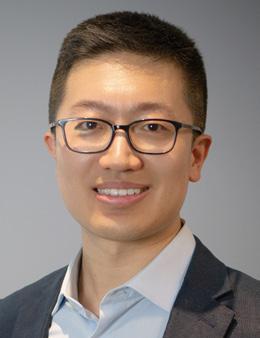
Raimond Winslow
Professor, Bioengineering and Director of Life Science and Medicine Research, the Roux Institute PhD: Johns Hopkins School of Medicine, 1985
Previously: Founding Director, Institute for Computational Medicine, Johns Hopkins University
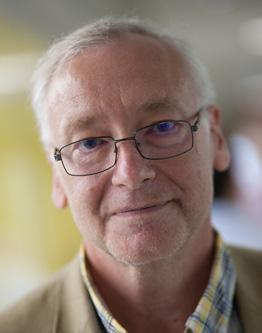
Scholarship Focus: Computational modeling of the molecular basis of arrhythmias; machine learning in critical care medicine
Awards: Fellow of American Heart Association, American Institute for Medical and Biological Engineering, and Biomedical Engineering Society
3ANNUAL REPORT 2021-2022
Faculty by Research Area
Biomechanics, Biotransport, and MechanoBiology
Rouzbeh Amini
Ambika Bajpayee Chiara Bellini Guohao Dai Jessica Oakes Harikrishnan Parameswaran Jeffery Ruberti Sandra Shefelbine
Systems, Synthetic, and Computational Bioengineering
Erel Levine
Herbert Levine Elizabeth Libby Mingyang Lu Mona Minkara Nikolai Slavov Eduardo Sontag Raimond Winslow
Imaging, Instrumentation, and Signal Processing
Samuel Chung Qianqian Fang Mark Niedre Mohammad Abbas Yaseen Miten Jain Tao Sun
Molecular, Cell, and Tissue Engineering
Anand Asthagiri
Ambika Bajpayee Samuel Chung Guohao Dai Jiahe Li Elizabeth Libby Lee Makowski Harikrishnan Parameswaran Sara Rouhanifard Jeffrey Ruberti Miten Jain Nikolai Slavov
4 NORTHEASTERN UNIVERSITY BIOENGINEERING
Faculty Honors and Awards
NSF CAREER Award for Drug Delivery Biomaterials
Associate Professor Ambika Bajpayee, bioengineering, was awarded a $630K CAREER grant from the National Science Foundation for “Developing Electrically Charged Biomaterials for Targeted Drug Delivery to Negatively Charged Complex Tissue Environments.” Delivering drugs to human tissues such as joints, cartilage, and tendons is a persistent challenge because the tissue is dense and contains few blood vessels. Drugs intended to reach these structures often “stick” to whatever they reach first without penetrating deeper. Through Bajpayee’s research, drugs could now be targeted to where they’re needed based on the negative charge of these tissues. Positively charged biomaterials carrying the drug would be drawn directly into the cellular matrix of these structures, channeling the drug deep into the tissue to reach cells close to the bone. Ultimately, this method could vastly improve treatments for osteoarthritis and other musculoskeletal diseases.
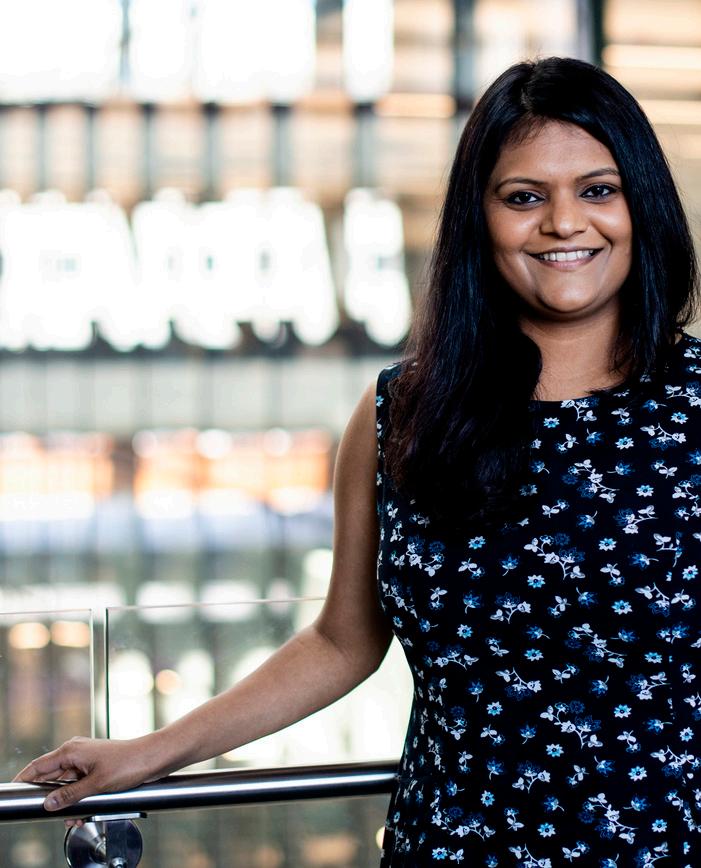
5ANNUAL REPORT 2021-2022
selected highlights
Photo by Ruby Wallau
Faculty Honors and Awards
Outstanding New Environmental Scientist (ONES) Award to Study Impact of Wildfire Smoke on Human Health
Assistant Professor Jessica Oakes and Associate Professor Chiara Bellini, bioengineering, were awarded a $3.4 million National Institute of Environmental Health Sciences Outstanding New Environmental Scientist (ONES) grant for “Cardiopulmonary Risk Assessment from Smoke Exposure at the Wildland Urban Interface.”
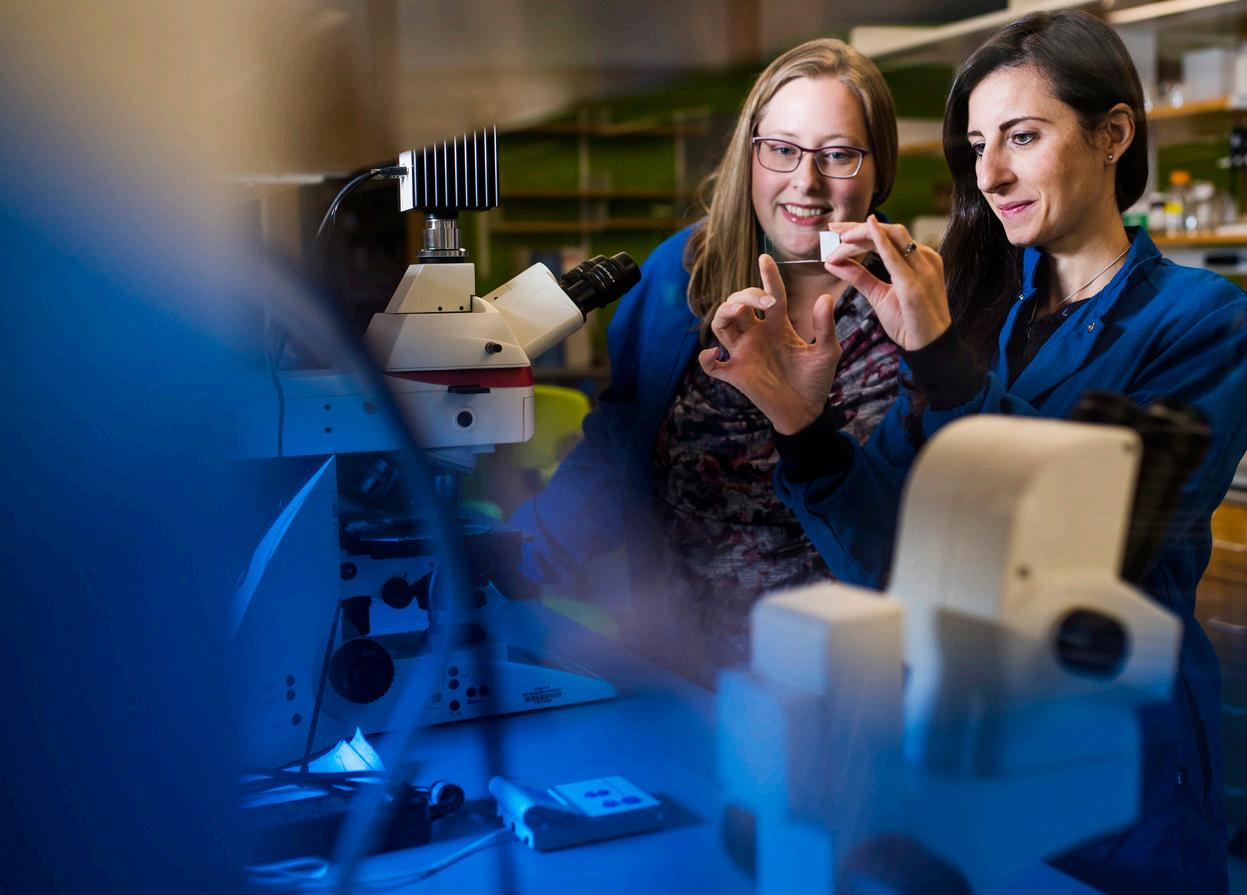
Wildland fires in the U.S. now consume an average of 7.3 million acres each year, more than twice the average figure from the 1990s—while the human populations in the paths of these fires keep growing. To date, studies on smoke inhalation from wildland fires have focused mainly on short-term effects. With the ONES Award, Oakes and Bellini will look deeper into the health risks associated with prolonged wildfire smoke inhalation, which damages the body when fine and ultra-fine particles penetrate the lungs and sometimes enter the circulatory system, threatening multiple organs. Worse, household materials ignited by these fires contribute a lethal inferno of airborne toxins.
Looking at the cumulative effects of both types of exposure, the researchers will use complex computational modeling and conduct live experiments on mice using a smoke mixture that mirrors the composition of wildfire smoke in the forests and chaparral of California. In addition to burning trees and brush, the experiments will focus on two highly toxic household items: plastics and the polyurethane foam common in furniture and bedding. Based on their findings, Oakes and Bellini hope to make policy recommendations on such issues as evacuations and the types of materials that should be avoided in new construction in the Wildland Urban Interface (WUI)—areas where human development mingles with wildland vegetation.
2022 Richard E. Bellman Control Heritage Award

University Distinguished Professor Eduardo Sontag, electrical and computer engineering, jointly appointed in bioengineering, received the 2022 Richard E. Bellman Control Heritage Award—the highest recognition in control theory and engineering in the United States. He was honored “for pioneering contributions to stability analysis and nonlinear control, and for advancing the control theoretic foundations of systems biology.”
$2.7M National Cancer Institute Award to Help Unlock the Mystery of How Cancer Spreads
Professor Mark Niedre, bioengineering, and Associate Professor Chiara Bellini, bioengineering, received a $2.7 million grant, titled “Continuous, Non-Invasive Optical Monitoring of Circulating Tumor Cell-Mediated Metastasis in Awake Mice,” from the National Cancer Institute. The project will develop a wearable device to detect tumor cells that enter the bloodstream, and study why and how they dislodge, and how they behave in the bloodstream, as well as devise ways to prevent them from metastasizing. Since the key to treating cancer is early detection, the research could have life-saving implications. Collaborators include Dana Farber Cancer Institute, Dartmouth College, and the Hospital for Sick Children in Canada.
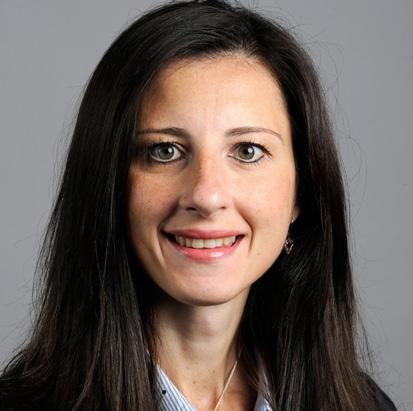
6 NORTHEASTERN UNIVERSITY BIOENGINEERING
Photo by Adam Glanzman
$7.5M DOD MURI Award to Advance Synthetic Biology

University Distinguished Professor Eduardo Sontag, electrical and computer engineering, and bioengineering, and collaborators received a $7.5 million award for “Rules of Composition in Synthetic Biology Across Scales of Complexity: Theory and Tools.” The grant is funded by the Air Force Office of Scientific Research under the Multidisciplinary University Research Initiative (MURI) program. Collaborators include Massachusetts Institute of Technology and California Institute of Technology.

Synthetic biology aims to program biology for applications, such as biosensing, smart probiotics, and regenerative medicine. A major challenge to engineering synthetic biological circuits that behave as intended is the compositional context: Networks are not “plug and play” because behaviors of individual components change when other components are present. This forces a designer to re-optimize each component when other parts are added. The result is that circuits are designed in a monolithic fashion through brute-force parameter search—a lengthy process that is neither scalable, nor generalizable, and often leads to poor outcomes. Overcoming these challenges requires a rigorous, modular, and systematic design framework that explicitly accounts for the context-dependence of biomolecular processes and undesired interactions, which one tends to neglect in the design phase.
The goal of the new grant is to impact synthetic biology by changing the way one describes, characterizes, and designs genetic modules, through tools that will enable the systematic and scalable design of increasingly complex biomolecular decision-making systems. The core of the project will establish theoretical foundations and tools, grounded on the mathematics of dynamical systems, that will enable the compositional design of synthetic biology circuits while accounting for context. A control-theoretic framework will be developed for the composition of biomolecular processes to capture unintended connectivity due to the sharing of cellular resources in gene expression as well as a hierarchical design methodology. The theory will be validated through bacterial, mammalian, and cell-free testbeds to be developed by the experimentalists on the team.
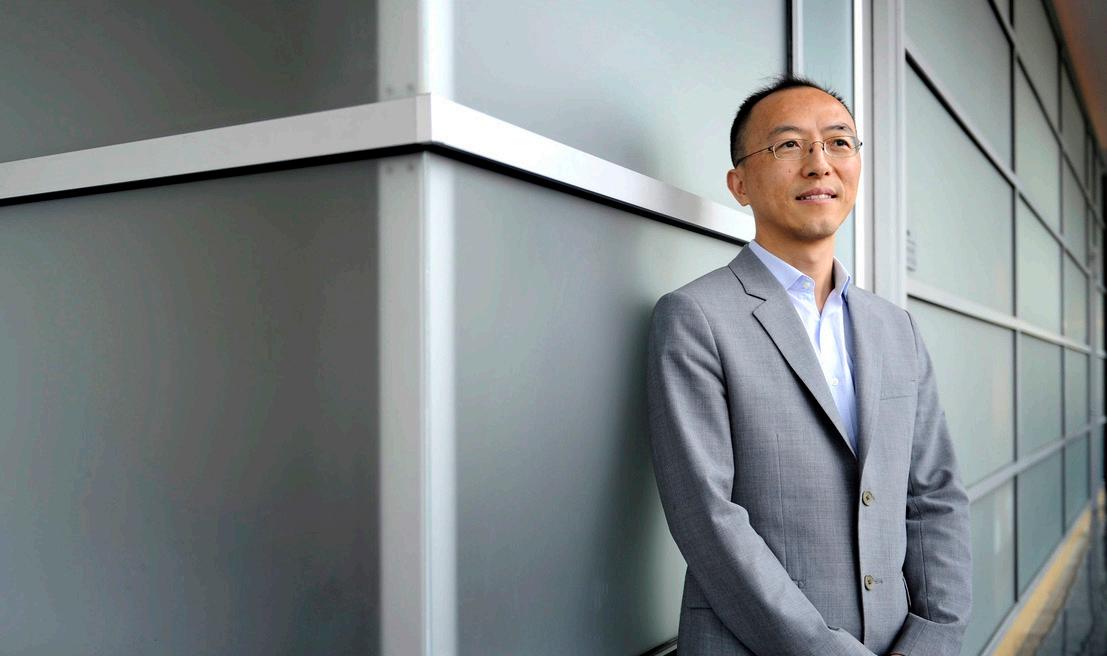
$2M NASA Grant to Build Long Lasting Neurovascular Model
Associate Professor Guohao Dai, bioengineering, and Associate Professor Abigail Koppes and Assistant Professor Ryan Koppes, both of chemical engineering, received a $2 million grant from NASA, titled “Bioengineer Long-lasting 3D Neurovascular Microphysiological System to Model Chronic Inflammationmediated Neurodegeneration.” They are developing a long-lasting 3D neurovascular model, which would be valuable to evaluate the impact of chronic stressors on the brain, such as drugs, environmental toxins, bacterial/viral infection, inflammation in neurodegeneration, as well as microgravity and radiation in longterm space flight. Current organ/tissue on-a-chip models only last one month, which is inadequate to model chronic diseases.

7ANNUAL REPORT 2021-2022
Photo by Adam Glanzman
Photo by Matthew Modoono
Faculty Honors and Awards
$5.5M NSF Grant to Build the International Physics of Living Systems Graduate Research Network
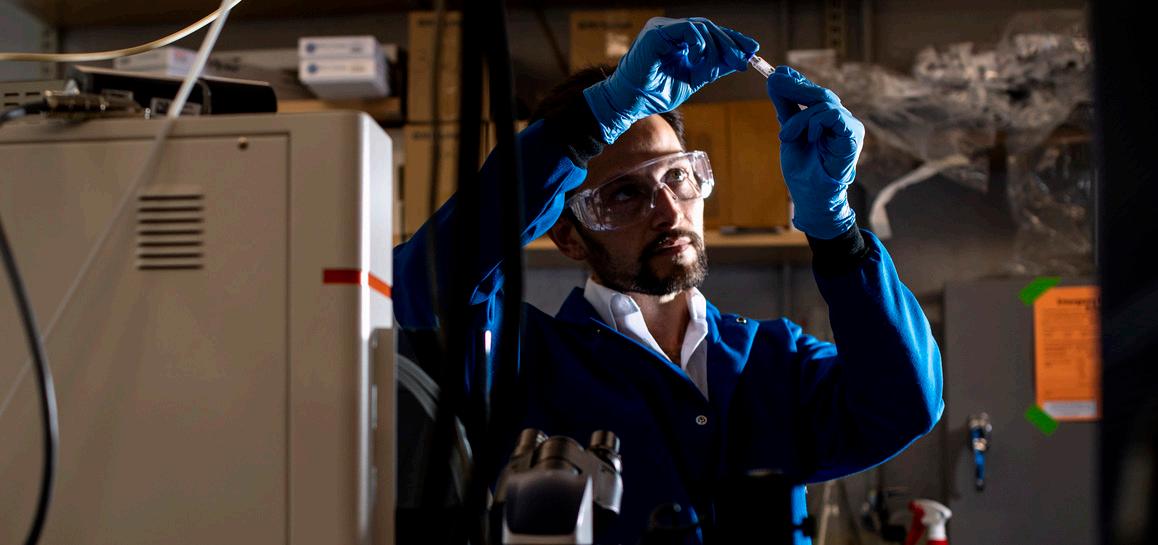
University Distinguished Professor Herbert Levine, physics and bioengineering, in collaboration with Princeton University, the University of Illinois at Urbana-Champaign, William Marsh Rice University, and Yale University, is leading a $5.5 million National Science Foundation grant for “International Physics of Living Systems Graduate Research Network.” The network connects graduate students across the globe who are using methods and concepts of physical systems to unravel the mysteries of living dynamics. It enables the creation of coherent training programs, forums for peer-to-peer learning and information transfer, and provides support for efforts to grow the faculty and student numbers in this field at U.S. universities. This project will continue building the network in the U.S., and one of the major goals continues to be fostering communication and cooperation across national boundaries.

NIH Grant to Identify Novel Markers of Senescence Cells
Associate Professor and Allen Distinguished Investigator Nikolai Slavov, bioengineering, in collaboration with Massachusetts General Hospital, was awarded a $588K NIH grant from the National Cancer Institute for “Single-Cell Proteomic Identification of Novel Markers of Senescence.” Cellular senescence is a stable form of cell cycle arrest associated with pro-inflammatory responses. Identification and characterization of senescent cells in human tissues will contribute to the understanding of human diseases. Mapping senescent cells at the three-dimensional level and single-cell resolution in human tissues is an important biomedical objective. Accurate mapping of senescent cells requires reliable markers to specifically identify senescent cells. The research will employ a novel single-cell proteomic technology to investigate the proteomes of senescent cells at the single-cell level, with the goal to reveal novel markers of senescence which can be used to identify and map senescent cells in human tissues.
Pioneering Single Cell Proteomics Research Published in Top Journals
Associate Professor and Allen Distinguished Investigator Nikolai Slavov, bioengineering, pioneered technologies, called Single Cell Proteomics by Mass Spectrometry, for quantifying thousands of proteins across many single cells. The technology offers a cheaper and faster technique that enables researchers to analyze a much larger number of single cells and gain much more accurate data. The new field was described in the November 2021 cover article of C&EN, titled “Individual Cell’s Proteins Vary. Single-Cell Proteomics Can Now Show How.”
As interest in single-cell proteomics grew fast, adoption was delayed by technical challenges in performing highly specialized analysis. The Slavov laboratory developed accessible methods that could be broadly adopted based on detailed protocols published by the group. A paper title, “Multiplexed Single-Cell Proteomics Using SCoPE2” was published in the October 29, 2021, issue of Nature Protocols
A paper titled “Increasing the Throughput of Sensitive Proteomics by plexDIA” was also published in the July 14, 2022 issue of Nature Biotechnology
Slavov founded and hosts an annual SCP Conference at Northeastern University, single-cell.net/proteomics/videos, which attracts attendees globally in academia and industry.
Learn more about our accomplished faculty
8 NORTHEASTERN UNIVERSITY BIOENGINEERING
Photo by Ruby Wallau
Photo by Ruby Wallau
Student Successes
selected
Women Who Empower 2022 Innovator Award
Bioengineering alumna Samantha Johnson, E’21, ME’21, was the first place winner of Northeastern’s Women Who Empower 2022 Innovator Awards in the Young Alumnae category. The recognition comes with a $22,000 award, which she will use to continue development of a robotic arm that can sign in American Sign Language for the DeafBlind community. She founded a company, Tatum Robotics, with funding from the Canadian National Institute for the Blind. The effort began as her thesis project with support from her advisor, Associate Professor Chiara Bellini, bioengineering, and other faculty including Assistant Professor Mona Minkara, bioengineering, Associate Professor Taskin Padir, electrical and computer engineering, who is also director of the Institute for Experiential Robotics at Northeastern, and Assistant Professor Jon Matthis, biology. Tatum Robotics has formed collaborations with the Perkins School for the Blind, National Technical Institute for the Deaf and Helen Keller National Center.
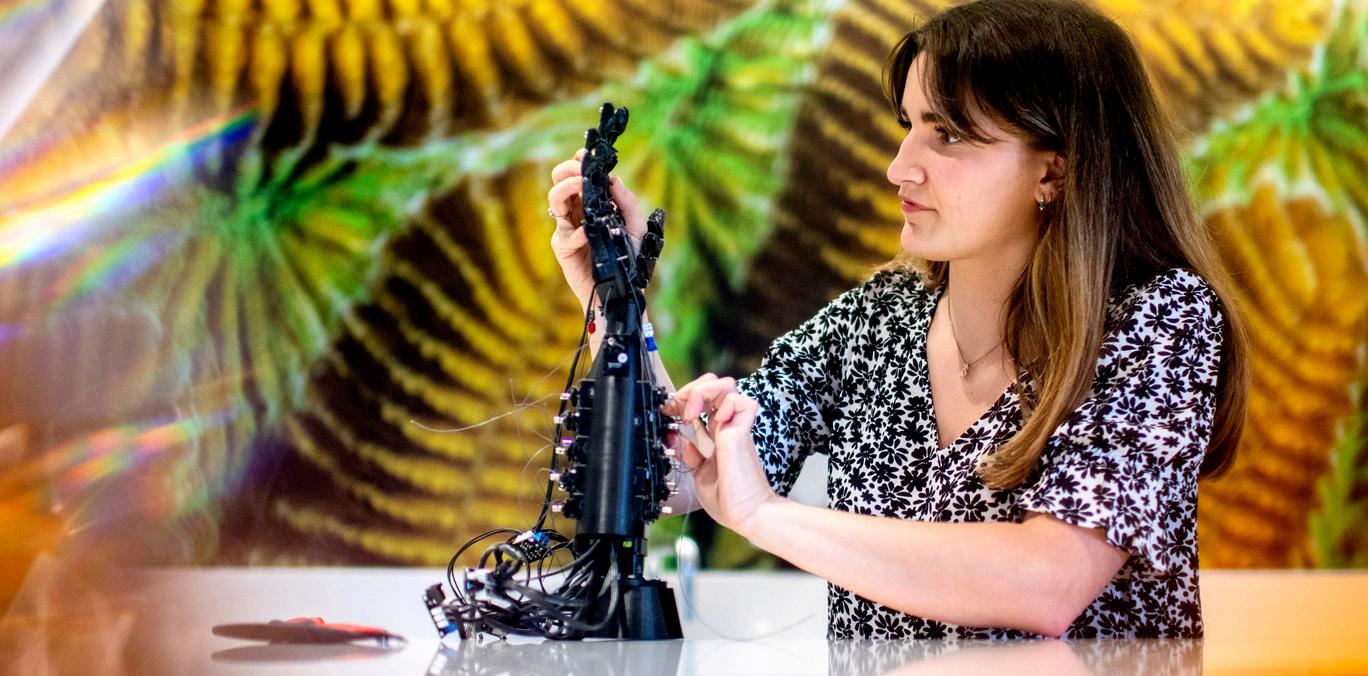
Published Research and Honored for Community Service and Leadership
Bioengineering alumna Kritika Singh, E’20, who was selected as a Rhodes Scholar and National Institutes of Health Oxford-Cambridge (NIH OxCam) Scholar, had her research, which she began before she graduated, on “Bright and Stable Luminescent Probes for Target Engagement Profiling in Live Cells” featured on the cover of Nature Chemical Biology. Singh was also awarded the 2021 Leadership Award and Building a Better Community Through Service Award, which is used to recognize OxCam Scholars’ exceptional leadership and service, not only to the Scholars Program but also to the greater community.

9ANNUAL REPORT 2021-2022
highlights
Photo by Matthew Modoono
Photo by Adam Glanzman
Student Successes
NSF Graduate Research Fellowship
Jeffrey Marchioni, bioengineering, E’20, received a National Science Foundation Graduate Research Fellowship, which recognizes and supports outstanding graduate students who have demonstrated the potential to be high achieving scientists and engineers early in their careers.

Barry Goldwater Scholarship
Giona Kleinberg, E’23, bioengineering and biochemistry, received the Barry Goldwater Scholarship, one of the nation’s most prestigious, meritbased awards for undergraduate students who plan to pursue research careers in natural sciences, engineering, and mathematics. Kleinberg’s research has varied from studying the effects of thyroid hormones on behavior to analyzing the mechanisms that allow large salamander-like animals, called axolotl, to regrow organs.
2022 Outstanding Graduate Student Award in Teaching
Caroline McCormick, PhD’24, bioengineering, received the 2022 Outstanding Graduate Student Award in Teaching from Northeastern for her exceptional ability to communicate ideas and concepts in the classroom and a talent for inspiring students.
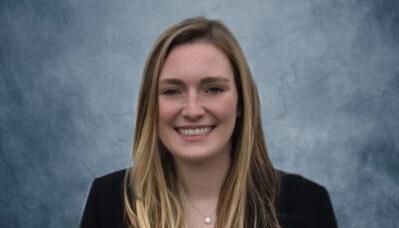
UPLIFT Scholar’s Research Leads to REU at Harvard University
Kaitlyn Ramesh, E’25, bioengineering, conducted research as an UPLIFT Scholar under the mentorship of Mingyang Lu, assistant professor of bioengineering and researcher in the Center for Theoretical Biological Physics. A selective program, the Undergraduate Program for Leaders In Future Transformation pairs first-year engineering students with a faculty mentor to work on research. She worked on developing a pseudotime algorithm that uses temporal single-cell RNA sequencing data. From this experience, Ramesh was selected for a Research Experiences for Undergraduates summer program at Harvard University. She worked in a biophysics lab involved in the Harvard Quantitative Biology Initiative.
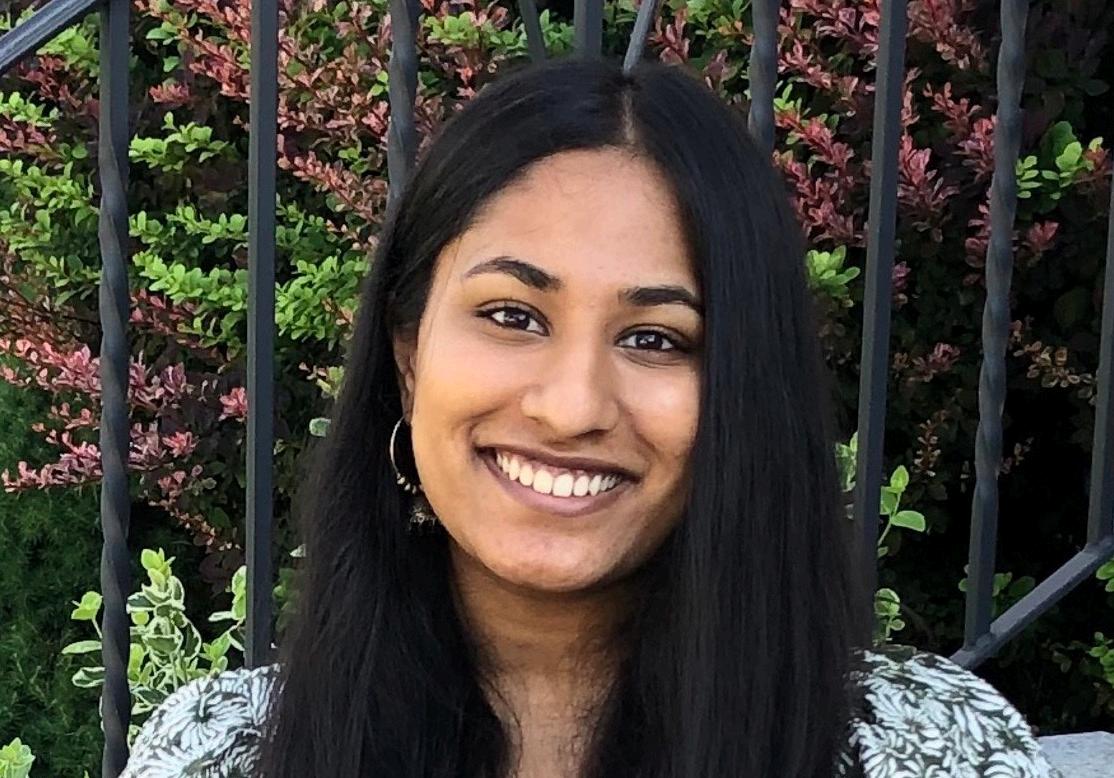
10 NORTHEASTERN UNIVERSITY BIOENGINEERING
Photo by Matthew Modoono
Student Spotlights

Yasmeen Farra, PhD’22
BIOENGINEERING
Advised by Chiara Bellini, Associate Professor of Bioengineering
Originally from Austin, Texas, Yasmeen Farra began her PhD at Northeastern in 2017 after graduating from Trinity University with a bachelor’s degree in engineering science. Her research focuses on vascular mechanics—specifically, how chronic disease associated with e-cigarette “vaping” or cigarette smoking influences the structural integrity and functional health of large arteries.
Recognizing her potential as a scientist, the National Science Foundation awarded Farra a prestigious Graduate Research Fellowship in 2019. During her doctoral studies, she worked on several projects and presented her work at numerous conferences in a wide range of topics, from tobacco research to magnetic resonance imaging, aerosol medicine, and biomechanics. Her efforts culminated in five first-author publications: three already published, one under review, and one currently in submission. As a result, she received the APSelect Award from the American Physiological Society for distinction in scholarship in the June 2021 issue of the American Journal of PhysiologyHeart and Circulatory Physiology for the article “Structural and Functional Remodeling of the Female Apoe−/− Mouse Aorta Due to Chronic Cigarette Smoke Exposure.” She was also selected as a finalist for the highly competitive student paper competition at the SB3C conference and received the 2022 College of Engineering Outstanding Graduate Student Award for her research contributions over the past five years.
Farra was elected to the Bioengineering Graduate Student Council where she served for several years. She has also devoted considerable effort to improving science communication as a fellow of the College of Engineering Communications Lab for nearly three years. She coached peer-to-peer sessions to help students with scientific writing and organized training sessions on how best to present scientific content.
Following graduation, Farra will be taking her passion for scientific research to her new role as a scientist at Senda Biosciences, a biotech startup in Cambridge, Massachusetts. She will work on the translational biology team to help bring life-changing treatments to patients by harnessing Senda’s platform for fully programmable medicines.
11ANNUAL REPORT 2021-2022
Experience-Powered Learning at Moderna
All Northeastern students hope to land a co-op that lets them wrestle with real-world problems while exploring their own academic interests. For Ella Strzegowski, E’23, bioengineering, her six-month co-op at Moderna from July to December 2021 did just that.
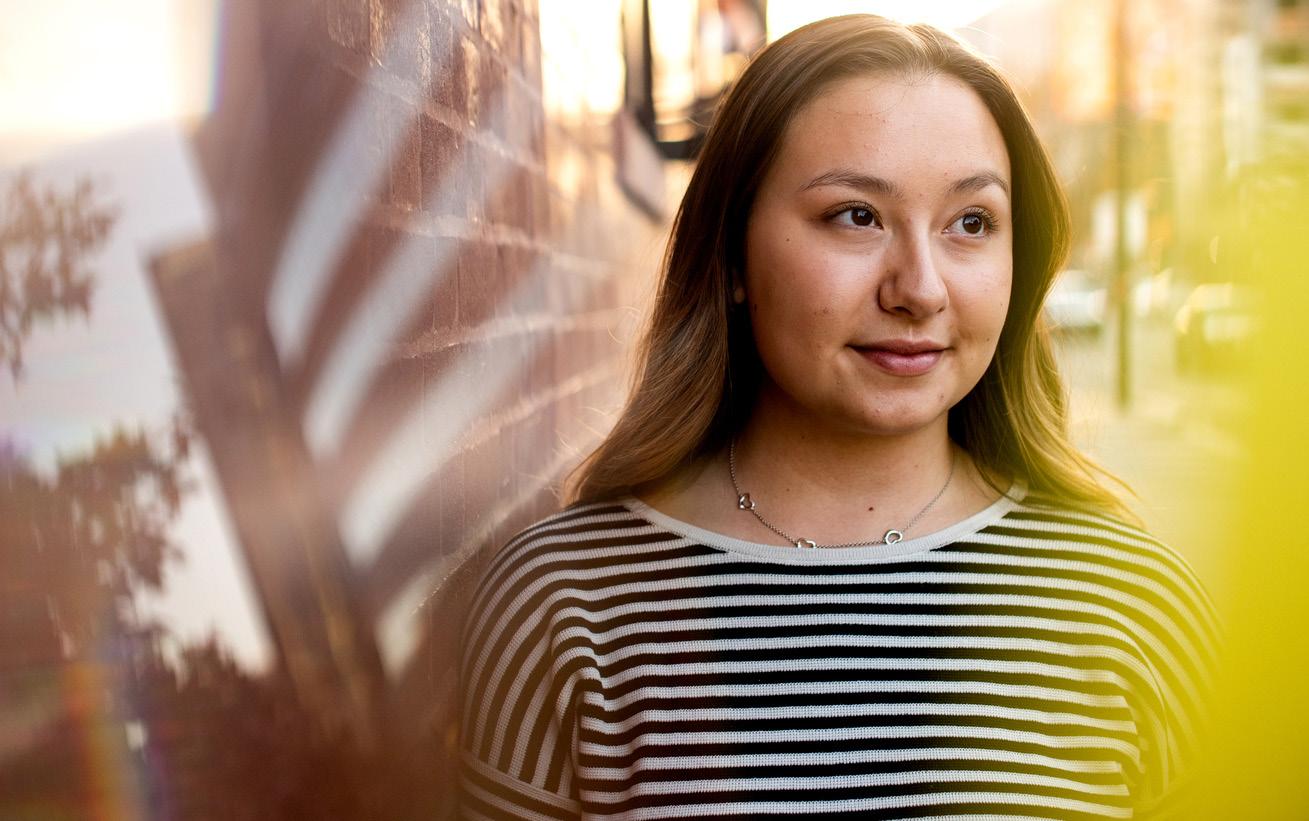
Strzegowski’s task at Moderna was part of the company’s quality control measures, which reduce production costs and are part of federal safety requirements. She used the chromatography technique to examine molecules in the messenger RNA (mRNA) vaccine solution.
Chromatography is a method of separating molecules in a mixture, which in this case is the vaccine itself. As the pharmaceutical giant continues to scale up vaccine production, Strzegowski says the work of improving the vaccine solution is important because it ensures the vaccine remains safe, on top of reducing manufacturing costs.
It was a fitting assignment because it aligned with Strzegowski’s own sense of work she finds meaningful: that which focuses on helping as many people as possible, in the broadest possible way.
In high school, Strzegowski developed a deep interest in biology. At Northeastern, the focus of her studies in bioengineering is on “cells and tissue.”
While at Moderna, Strzegowski was part of a broader team focused on mRNA process development, specifically on improving the manufacturing capabilities and efficiencies in order to scale up production and distribution of the stillin-high-demand COVID-19 vaccine.
mRNA vaccines use viral genetic material to teach the immune system to respond to threats, as opposed to adenovirus vaccines, like Johnson & Johnson’s, which use a weakened version of an actual virus. But mRNA material is incredibly delicate, requiring storage at sub-zero temperatures to remain viable, which means widespread manufacturing and distribution is an ongoing challenge. Strzegowski says it was an exciting time to work for a company that’s been so pivotal in combating the pandemic. “New teams were being created and projects are getting shifted around constantly,” she says. “Even though it may be a little chaotic to experience that growth, to be a part of it was amazing. It was definitely a great workplace.”
Strzegowski says there was a vast division of labor across the company, with teams working on every conceivable problem across numerous biotech projects, spanning vaccines and other drug therapies, to novel cures for rare diseases.
“Some of the biggest issues with our mRNA process is the high cost to manufacture and time it takes to produce,” Strzegowski says. “By reducing the cost and decreasing time we would be able to produce a lot more mRNA and be able to supply it at lower costs, which is super important when supplying to low income countries, or developing personalized cancer vaccines which can [cost] upwards of tens of thousands [of dollars] per treatment.”
The work, she says, is not exclusive to the COVID-19 vaccine. New methods and strategies for streamlining and refining production can be applied to the development of other therapies.
12 NORTHEASTERN UNIVERSITY BIOENGINEERING Student Spotlights
Photo by Matthew Modoono
bioe.northeastern.edu
COVER IMAGE
Associate Professor Ambika Bajpayee received a CAREER Award from the National Science Foundation for “Developing Electrically Charged Biomaterials for Targeted Drug Delivery to





Charged Complex Tissue Environments.” Her research
vastly improve
for
See
by Ruby Wallau/Northeastern
Letter from the Chair 1 Fast Facts 2 Faculty Honors & Research 5 Student Successes 9
Negatively
could
treatments
osteoarthritis and other musculoskeletal diseases.
page 5. Photo
University 206 Interdisciplinary Science and Engineering Complex 805 Columbus Avenue Boston, MA 02118 P 617.373.7805 bioe.northeastern.edu coe.northeastern.edu

 Photo by Adam Glanzman
Photo by Adam Glanzman

































